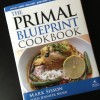Is the growing season delayed everywhere, or is it just in Minnesota this year? The frigid northern winter hung out for an extended stay and didn’t mosey back up to Canada where it belongs until around mid June. As a result, my garden and my CSA are only just now starting to provide enough sustenance [...]










